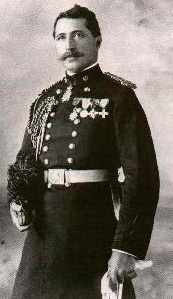O ka `oni pa`a
Ku kilakila no ka lahui
Ne`e êwe o Hawai`i a
Kâu i ka lanakila
E ka moho Iaukea
Na ka I me ka Mahi
Nei lei mamo liko
Ô iwi pono`î no ka iwi kuamo`o
A imua e ka alo
Me na mana koho
A lanakila `oi Iaukea
Lalau i ke ihe
Me ka mahiole
Ke kahua mokomoko pahu pâloka
I nui e ke aho
A e na pôki`i
A welo e ka hae Iaukea
Hui:
Kui ia e ka lei
Lei hiwahiwa
Wili ia ke aloha
Me ka lôkahi
I hôkû alaka`i Iaukea
Together let us move to build
A proud nation and
Stimulate the birth of Hawai`i
Your victory is with
The candidate, Iaukea
Belonging to the I and Mahi family
This young man has
A strong native background
Go forward with the favorite
And powerful candidate
Victory is best with Iaukea
Don’t make a mistake
Cast your ballot for this valiant warrior
With the platform
That is much better
Young voters
Iaukea will fight vigorously for your ancestral rights
Chorus:
Weave a lei
Precious, esteemed lei
Woven with love
And unity
Your outstanding leader is Iaukea

Curtis Iaukea
Source: G. Cooke Collection - Curtis Pi`ehu `Iaukea, (1855–1940) served as Secretary of Foreign Affairs for the Kingdom of Hawai`i during the reigns of King David Kalâkaua and Queen Lili`uokalani. He served the monarchy as a highly competent one-man Diplomatic Corps and with the exception of King Kalâkaua, was the most traveled member of the Hawaiian Kingdom. He was the administration's special envoy to the Coronation of Czar Alexander III of Russia, and accompanied Queen Julia Kapi`olani to the United States, serving as her interpreter with President and Mrs. Grover Cleveland. He traveled to the United Kingdom with Queen Kapi`olani to celebrate the Golden Jubilee of Queen Victoria in 1887, and returned to celebrate Queen Victoria's Diamond Jubilee, as one of the representatives of the Republic of Hawai`i, created July, 1894. After Hawai`i was annexed to the United States in August, 1898, and became the Territory of Hawai`i, `Iaukea entered local politics. This song was composed for his political campaign. He held the office of Sheriff of Honolulu 1907-1909. In the memoirs of Curtis Pi`ehu `Iaukea, King Kalâkaua favored "a bill, considered extravagant by conservatives, to cover the cost of educating several Hawaiian youths abroad. Robert Wilcox was one of the first three of 18 young Hawaiians (17 males and 1 female) that participated in the "Study Abroad Program" sponsored by the King between 1880 and 1887. Program participants were sent to Italy (5), Scotland (3), England (3), United States (4), Japan (2) and China (1). This initiative was admired by his supporters and scorned by his enemies. A 1988 article in the "Hawaiian Journal of History" by Agnes Quigg, traces the progress of all 18 students and points out that upon the imposition of the "Bayonet Constitution" that curtailed Kalakaua's power in 1887, the so called "Reformed Cabinet" recalled most of the students home.